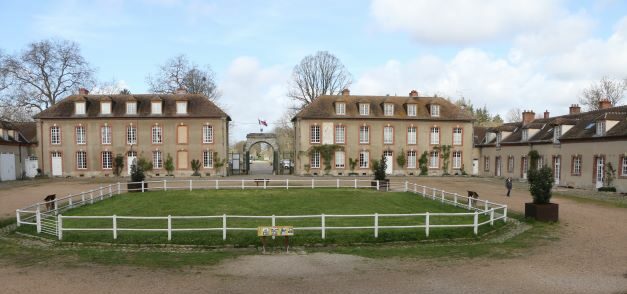France Tour of the world’s Ovinpiades
France hosted the 3rd World Cup for Young Shepherds from Saturday 25 May to Saturday 1 June 2024, and everyone discovered the emblematic Bergerie Nationale to find out who would be on the podium as the world’s top 3 young shepherds.
After a 10-year absence, France is relaunching the world Ovinpiades. Some fifteen foreign delegations took part in the 3rd « World Cup for Young Shepherds ». Around thirty young people aged between 18 and 26, either in agricultural training or already working, competed in a travelling format for the title of World’s Best Young Shepherd from 25 May to 1 June 2024.
After being welcomed in Paris, all the competitors boarded a bus for Limousin, Aveyron, Auvergne, Burgundy and the Bergerie Nationale de Rambouillet to discover the diversity of French sheep farming. They were reacquainted with the legendary Ovinpiades nationales events, as well as some new ones such as quad shearing and mobile fencing.
A French competition that has gone global
In France, over the next few years, more than 1 in 2 ewe farmers will be retiring.
It is against this backdrop of the need to revitalise the industry that INTERBEV Ovins and the sheep industry as a whole have been organising the Ovinpiades des Jeunes Bergers since 2005, the European Championships are held annually and, after an absence of 10 years, the Ovinpiades Mondiales are making a comeback in France.
The 1st Young Shepherd World Cup was organised in 2011 by New Zealand (in Oamaru). The following year, sheep professionals decided to found the International Association to create a dynamic network for agricultural training, encourage exchanges between young people and the installation of future ewe breeders.
The 2nd World Cup was organised by France in 2014 at the Sommet de l’élevage in Auvergne.
The European Championship is organised every year during the national final of the Ovinpiades at the Salon International de l’Agriculture.
From the 4 corners of the world, inspiring vocations and exchanging ideas
During this competition, the profession of ewe breeder will reveal its assets to attract vocations. In fact, like France, other countries are facing the same difficulties in renewing their ewe breeders.
By organising the World Cup for Young Shepherds, the Association Internationale des Ovinpiades aims to encourage exchanges around the theme of training. Other initiatives are offered to young people, such as « helping hand » grants for individual training courses in sheep production or study trips to sheep-farming countries in the European Union: the United Kingdom, Ireland, Eastern Europe, Italy, Spain, etc.
These courses and trips have a number of objectives and benefits: to arouse young people’s interest in sheep farming, to discover and appreciate the practices of sheep industry professionals in other countries, across all sectors, to find out how sheep farming is taught in neighbouring European countries, to build up a European ‘address book’ for the sheep industry, etc.
Nearly 500 young people have already benefited from these funds in the past. By relaunching the Ovinpiades Mondiales, France also wanted to relaunch this exchange scheme.
14 countries enjoy a week of competition and more
France invited nations with strong sheep-farming traditions from around the world. Argentina, Armenia, Australia, Belgium, Benin, Canada, Chile, Côte d’Ivoire, Ireland, Peru, Spain, Togo and the United Kingdom answered the call!
During the last week of May 2024, 14 countries were represented by 29 candidates. The delegations were made up of 2 young people – boys and girls – aged between 18 and 26 (in agricultural training or working for less than a year) and a companion, and they competed for the title of World’s Best Young Shepherd.
The DGER’s Europe and International networks worked hard to identify, organise and/or support delegations from Africa (Benin, Côte d’Ivoire, Togo), the Americas (Argentina, Chile, Peru, Quebec) and Europe (Armenia, Belgium, Spain, Ireland, United Kingdom).
In addition, some delegations arrived a week before the event and visited agricultural establishments (Benin, Chile, Côte d’Ivoire and Togo), while others stayed a week after the event (Argentina, Peru).
France was represented by Iris and Benoît, the best young shepherds 2024 selected on 24 February 2024 at the national final of the Ovinpiades at the Salon International de l’Agriculture in Paris.
5 departments crossed, 6 events…
In order to showcase the diversity of ewe farming, it was decided to organise a travelling competition combining trials, visits and exchanges.
The Ovinpiades des Jeunes Bergers is an invitation to discover the sheep-farming profession from the inside, through hands-on experience. The global competition continues the tradition of the legendary events of the national finals, but spices up the experience by adding 2 new emblematic events: shearing and quad fencing.
And the winners are…
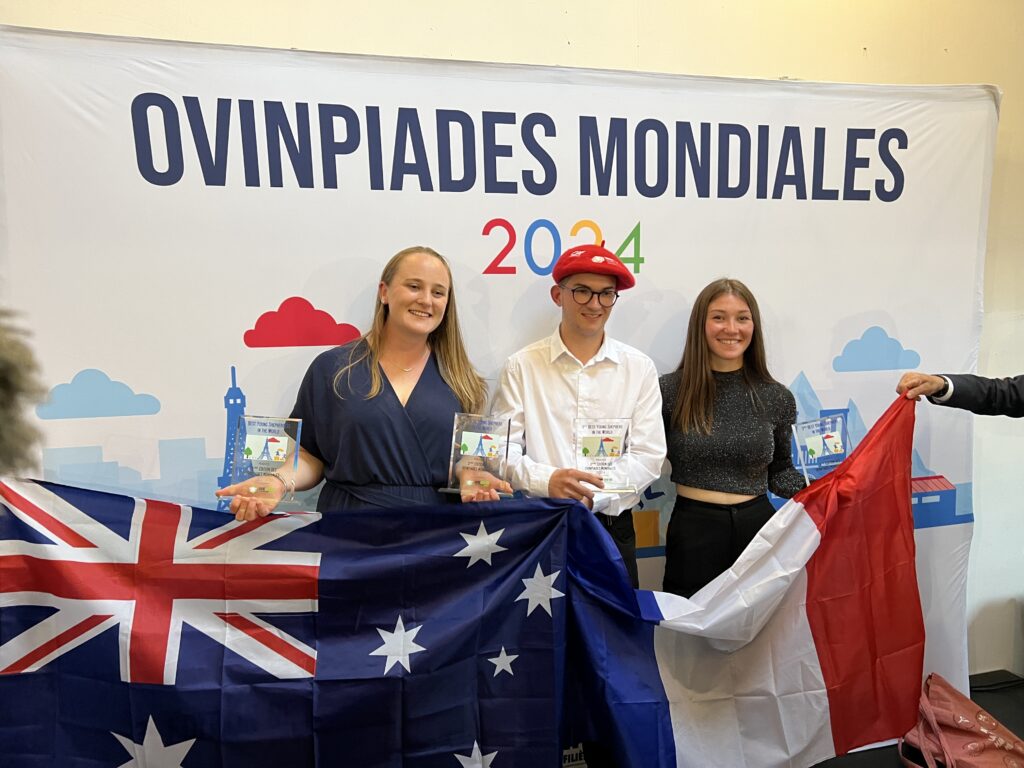
- Benoît, representing France, in first place,
- Gaby, representing Australia in second place,
- Iris, representing France in third place.
For the full list of winners, find out more about how each event is graded.
Opportunities for agricultural education
Beyond the competition itself, this event is an opportunity to highlight the commitment of agricultural education to promoting the sheep industry, to emphasise the priority given to the professional integration of apprentices trained in agricultural education and to contribute to the renewal of generations in the agricultural sector. Above all, the scale of this competition highlights the European and international dimension in the training of future farmers, as well as the openness of French agricultural establishments, which is reflected in the fact that they welcome foreign apprentices.
The Europe and International networks of agricultural education have worked hard alongside the organisers of the Ovinpiades to bring in their partners and help boost the presence of foreign delegations from Europe, Africa and South America.
On this last point, this event is an opportunity to strengthen or build partnerships or actions implemented by agricultural education and training institutions.
Pastoralism: between training and professionalism
The West Africa network invited 3 teams – from Benin, Côte d’Ivoire and Togo – to take part in the Ovinpiades mondiales organised by Inn’ovin. Each team was accompanied by a representative of the Fédérations nationales des communes pastorales (FNCP), providing a link between training and the profession.
Specific preparation for the Ovinpiades was organised in each of the 3 countries, on the one hand in situ with the accompanying persons, with sheep farmers and sheep centres, and on the other hand remotely with French agricultural high schools in 3 different regions renowned for their sheep production (PACA, Occitanie, Normandie) with the sharing of advice, documents, photos and videos, and in liaison with the local sheep profession.
From the FSPI project to the Ovinpiades
The Peruvian delegation was made up of representatives from two institutions identified as part of a FSPI project on sustainable food, to be implemented between 2022 and 2023. During this project, 3 Peruvian institutions were identified and put in contact with 3 French institutions.
Training with the 2024 runner-up!
The Chilean delegation came from a school in southern Patagonia (Coyaique), a new partner in the Chile network identified at the last Franco-Chilean agricultural education forum organised in 2022. This was an opportunity for the school to bring learners to France for the first time and to give concrete expression to the budding partnership. The Chilean delegation arrived ahead of the Ovinpiades and were welcomed by the Nevers EPL and the Fontaines EPL, where they met the 2024 vice-champion for a training session.
Opportunities to develop partnerships
The Argentinian delegation came from the province of Santa Cruz (in Patagonia) and was the result of a joint project with Argentina’s National Institute of Technical Education (INET). The aim was to identify provinces with links to Argentina’s leading vocational training body (INET), with which partnerships could be set up between establishments in these provinces and French agricultural establishments. After the Ovinpiades, they were welcomed by the Lycée agricole Jean Errecart, the EPL de Pau and the EPL de Castelnaudary to find out more about the sheep industry, those involved in training and the professional sector.
Europe side
The Andalusian shepherds’ school (Escuela de pastores de Andalucia) in Granada was selected from around ten Iberian establishments to take part in this competition, because of its dynamism, responsiveness and willingness to develop cooperative ventures. The candidates were met by the Spain/Portugal network coordinator in the mountain pastures of the Sierra Nevada in December 2023. The mobility and partnership projects envisaged with the school management will then be worked on for the benefit of the young Spanish and French students.
The next meeting of the Ovinpiades will be European, live from the SIA 2025, and we hope that the international format will not have a 10-year truce before once again confronting the pastoral cultures of each country with a tradition of sheep farming.
Contacts: Paul Ménard and Vincent Vanberkel, coordinators of the international youth competitions for agricultural education (+ ask for the contact details of the network coordinators in the corresponding countries), paul.menard@educagri.fr and vincent.vanberkel@educagri.fr
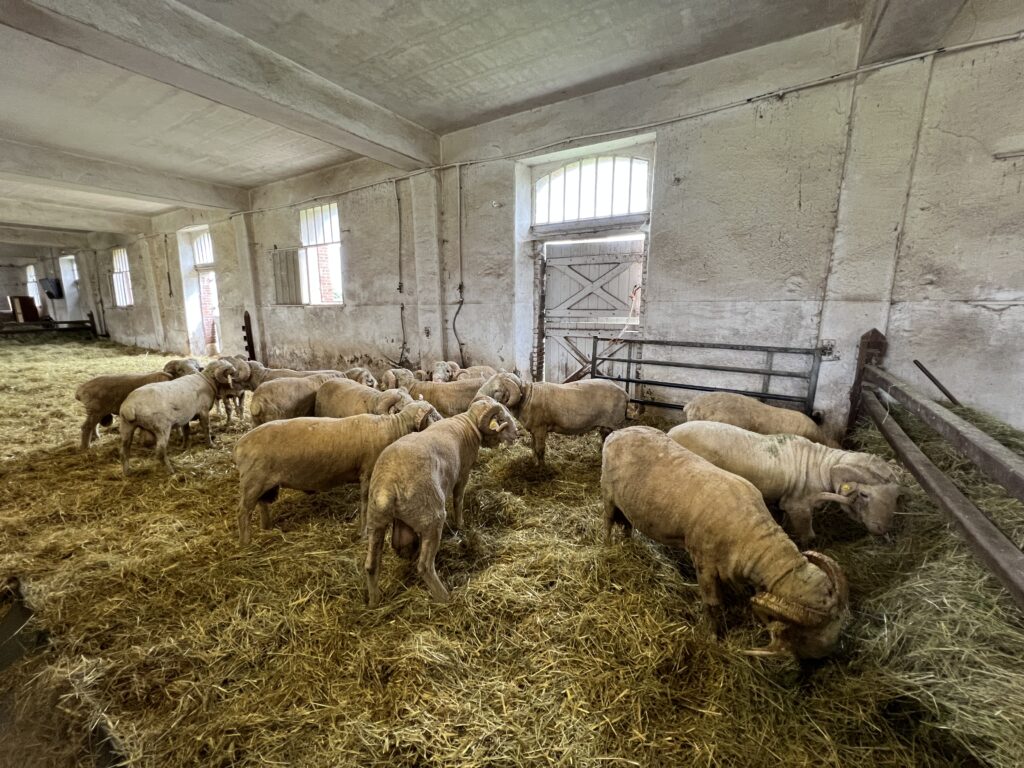
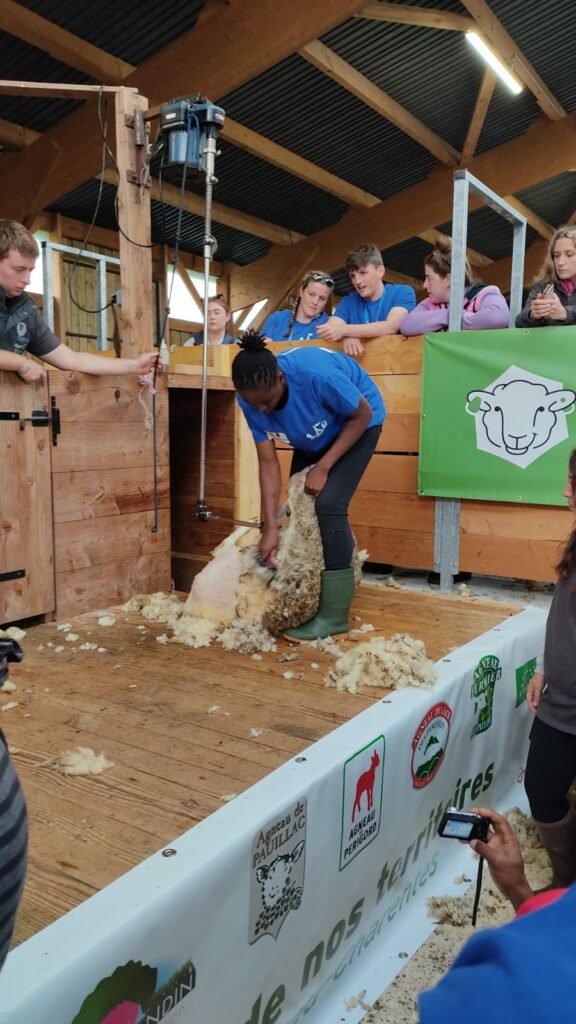
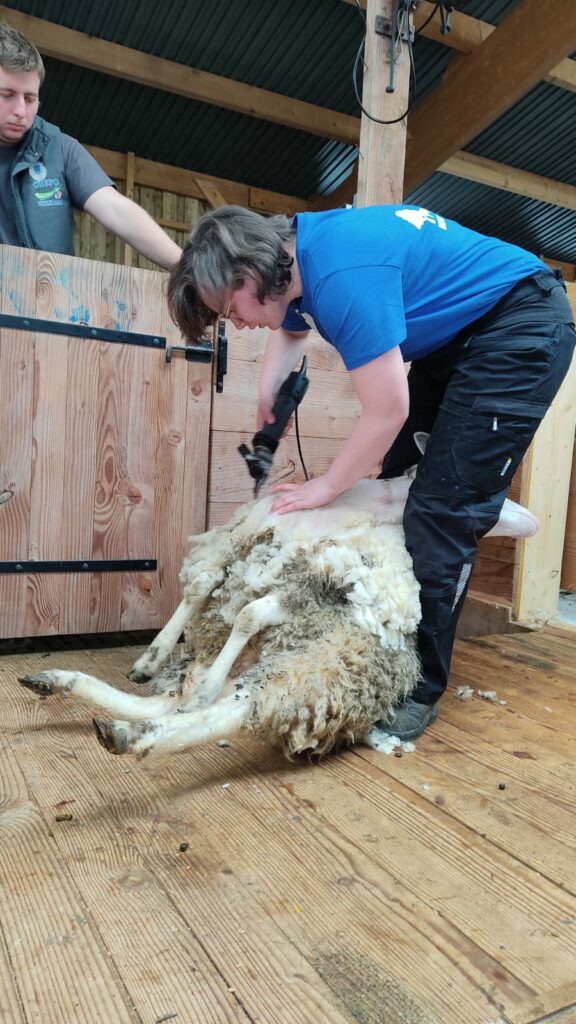
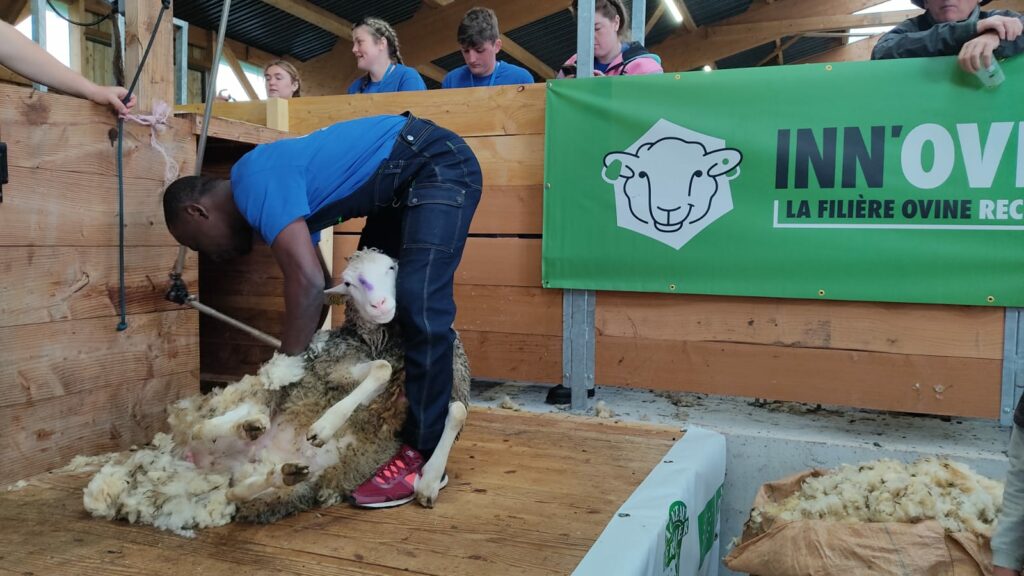
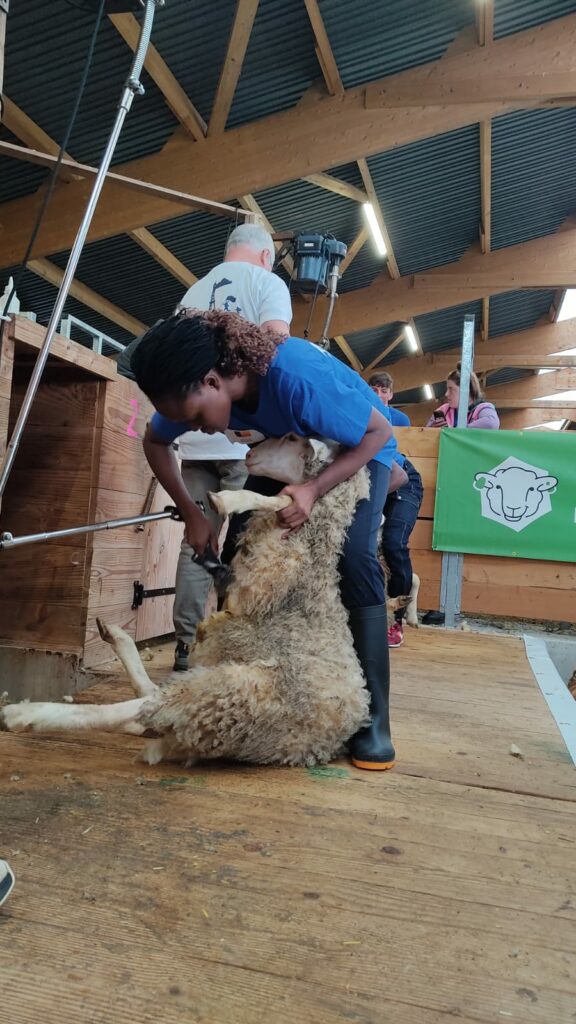
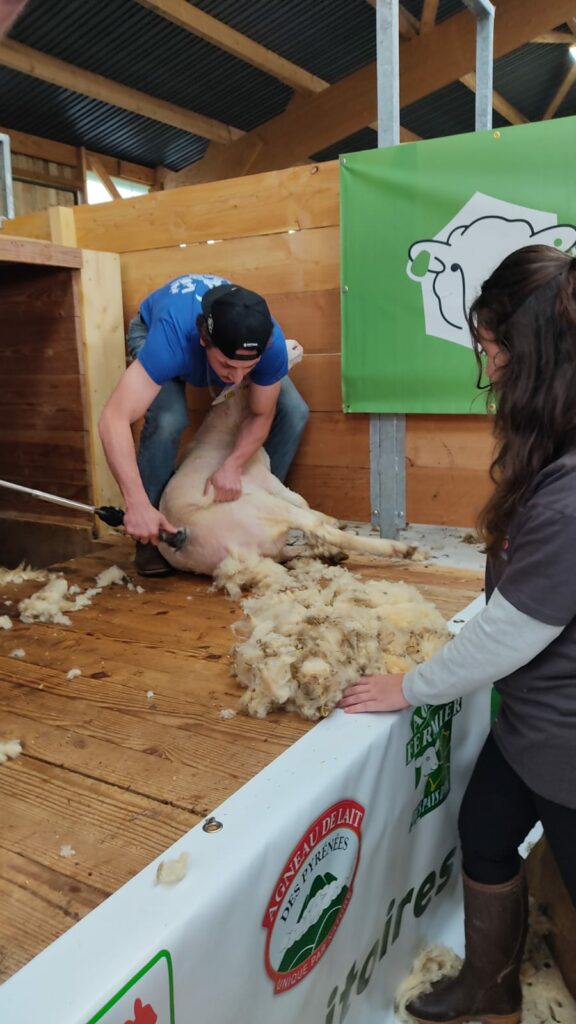
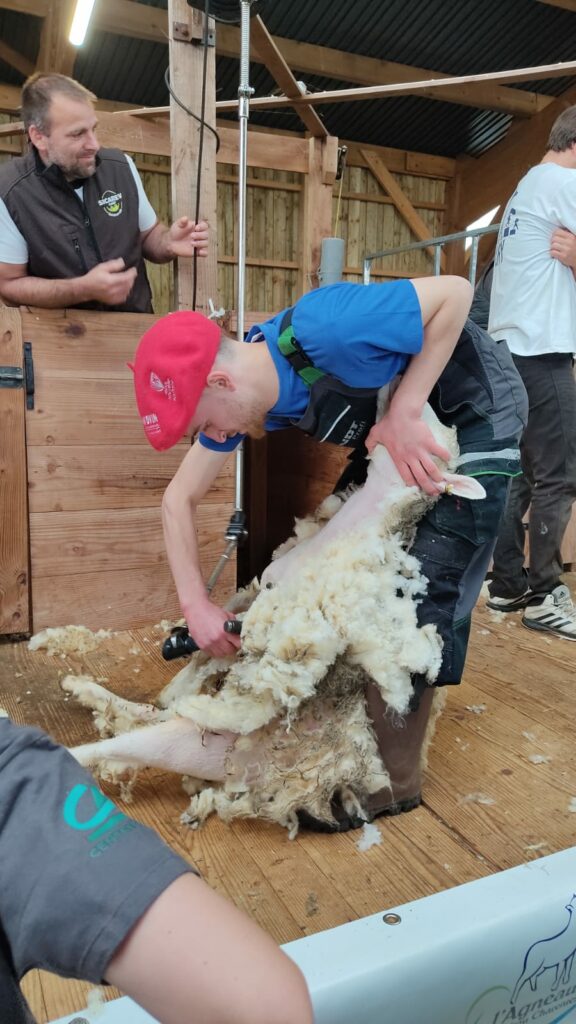
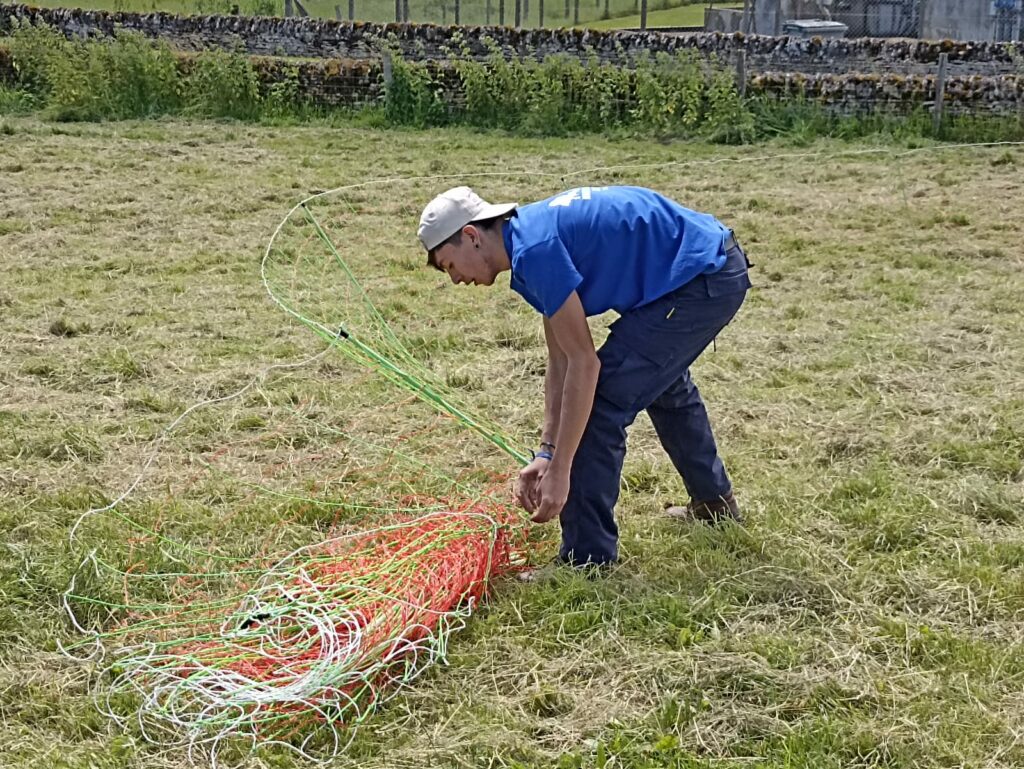
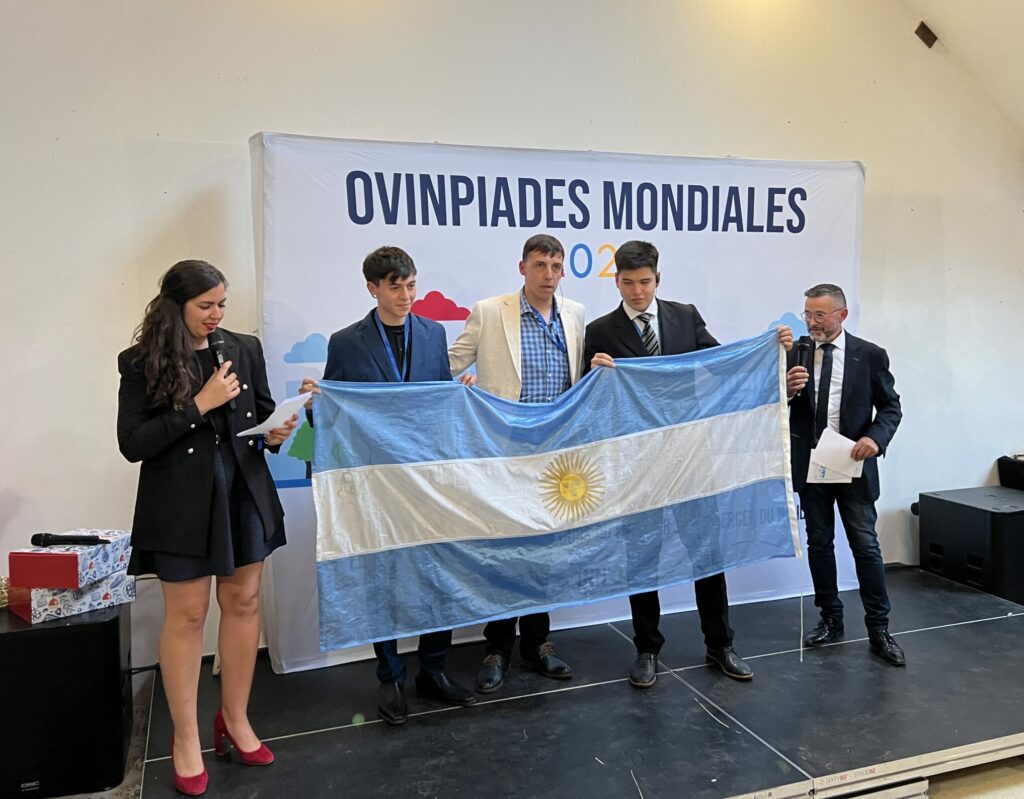
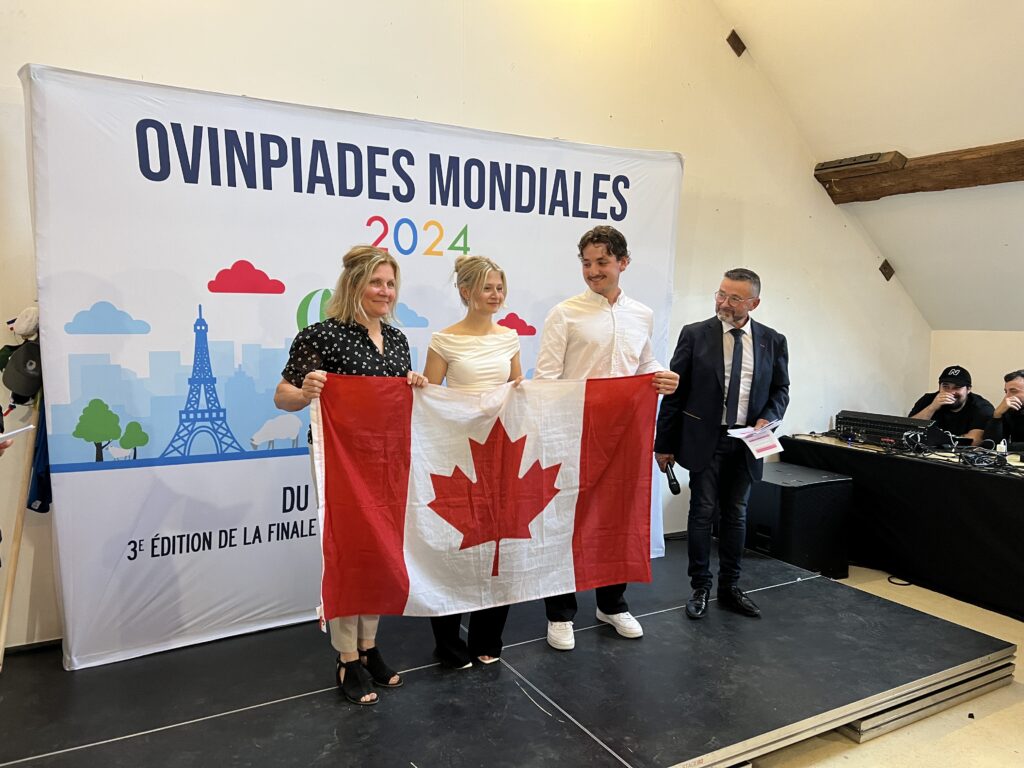
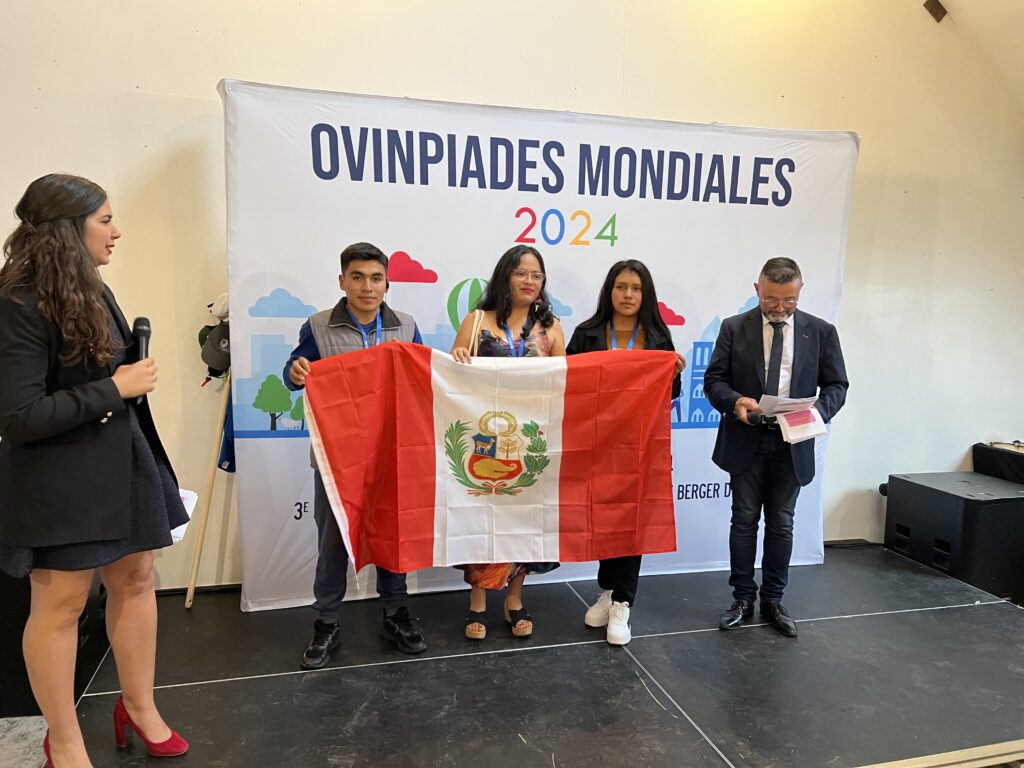
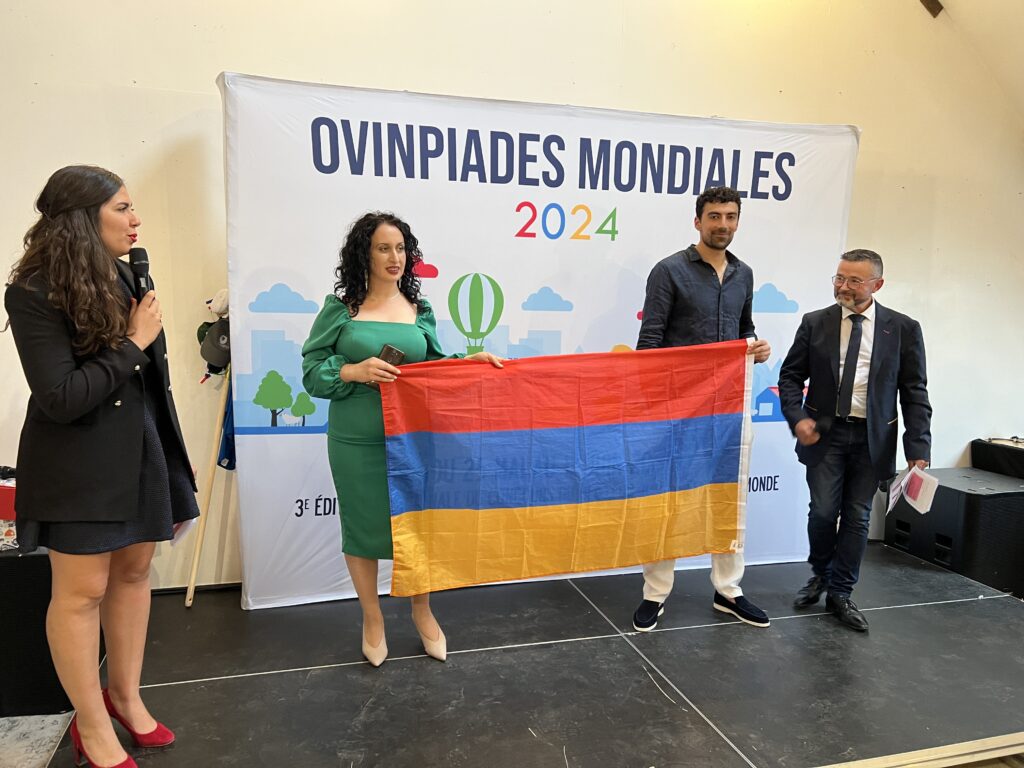
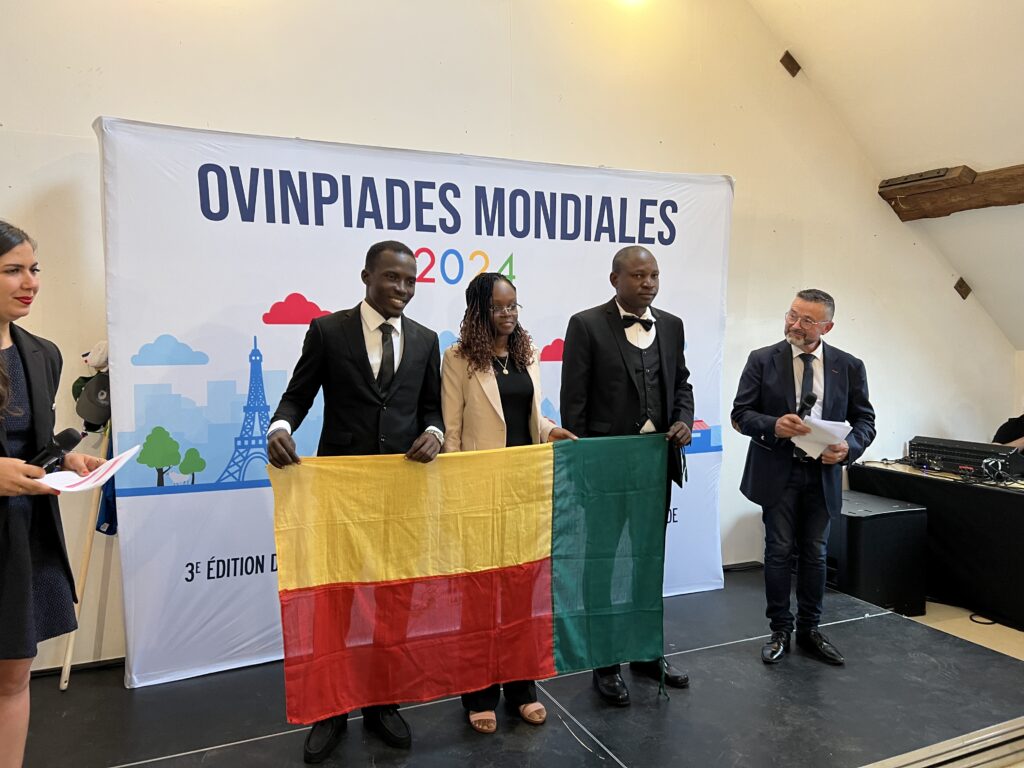
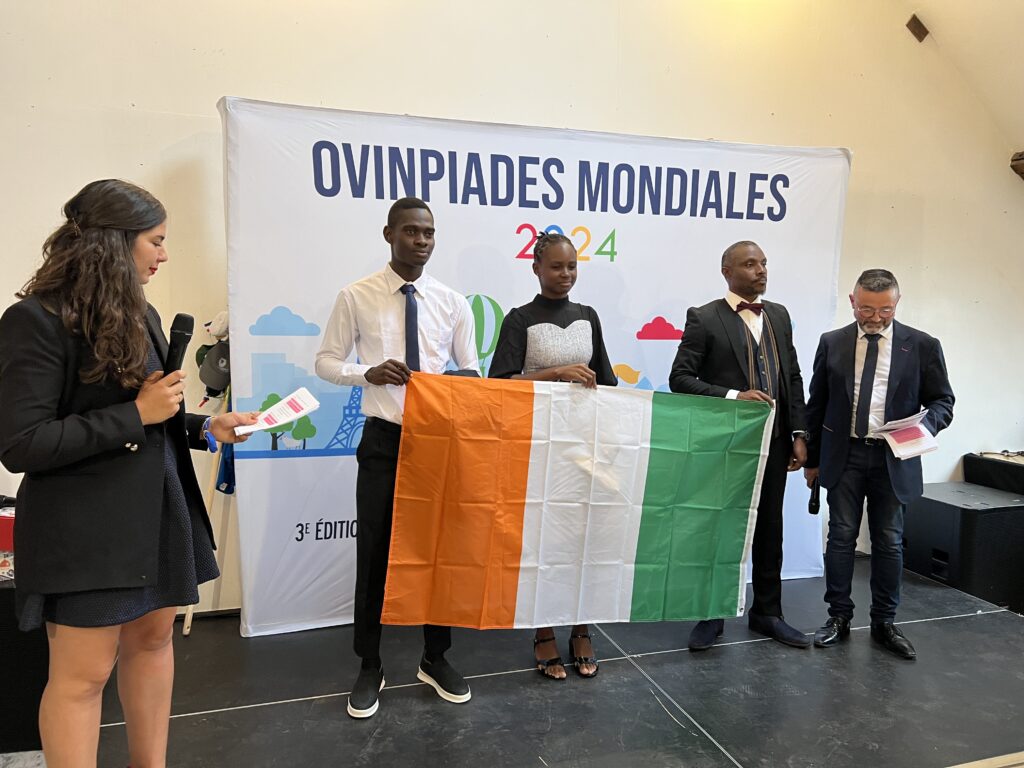
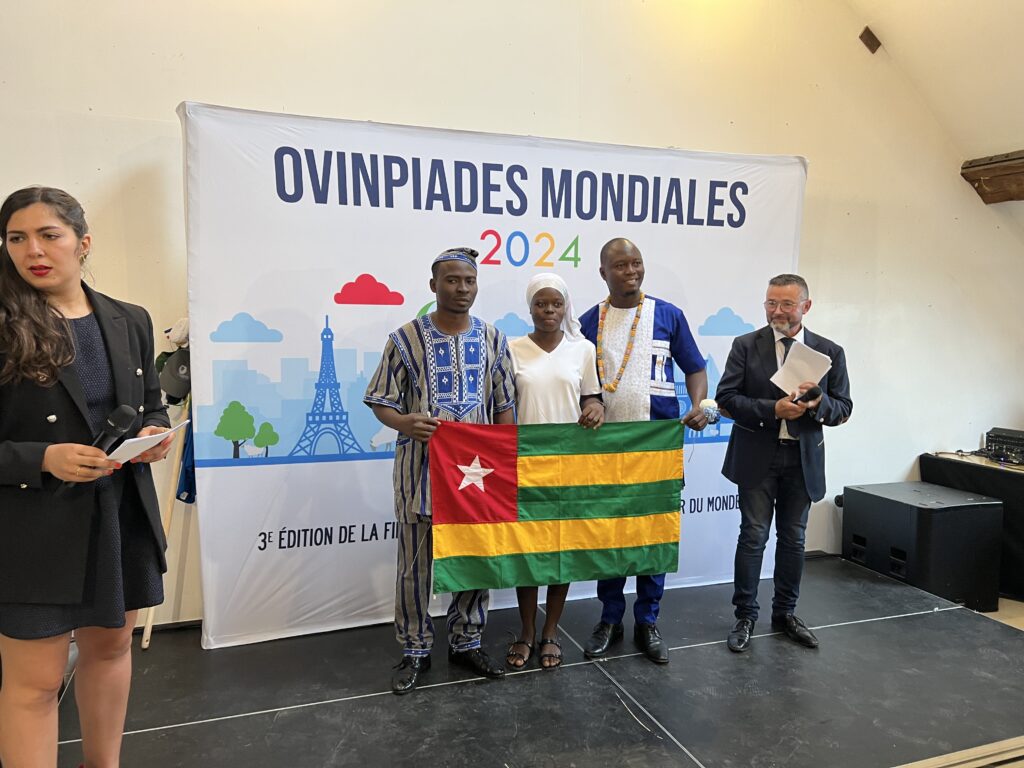
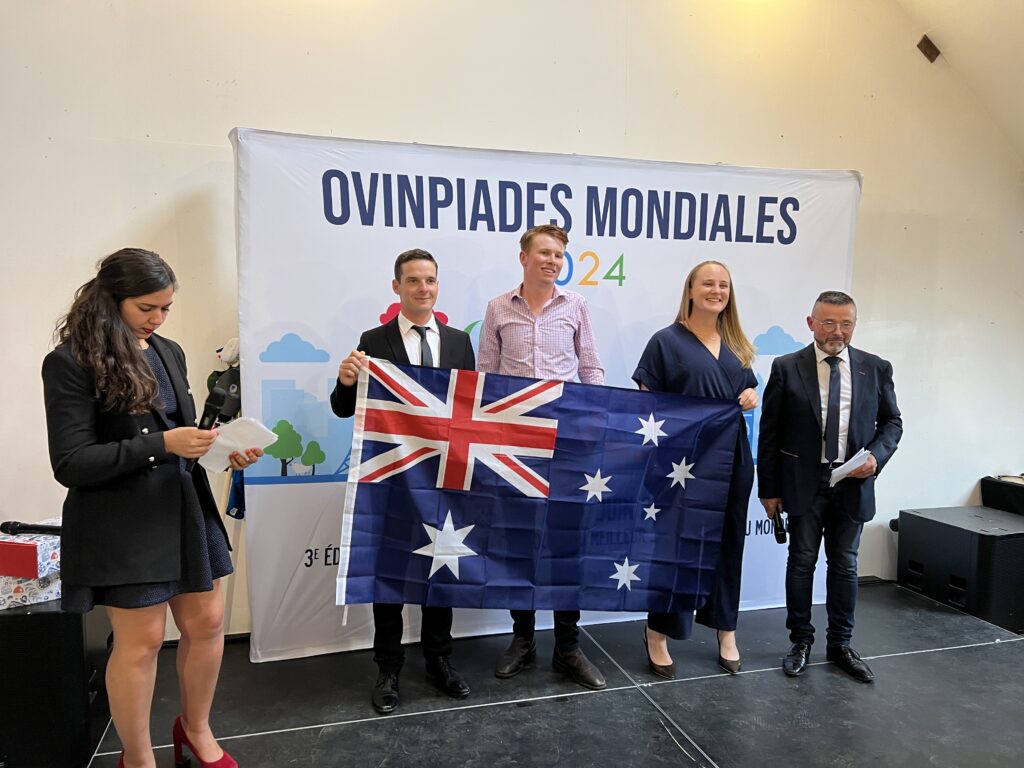
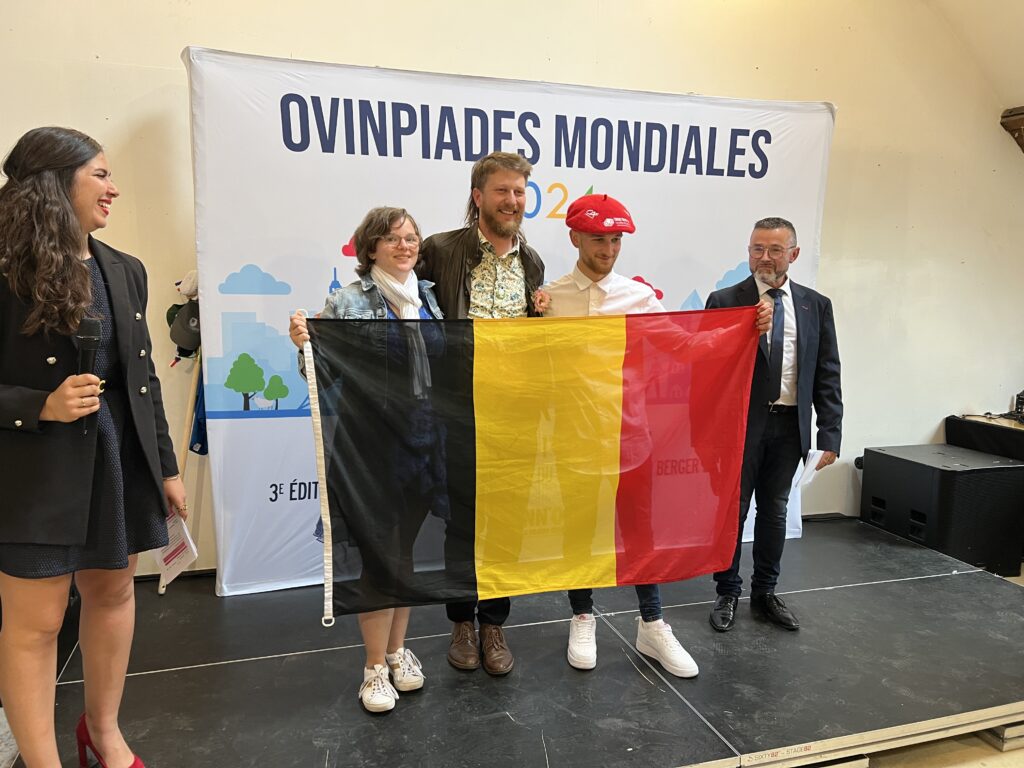
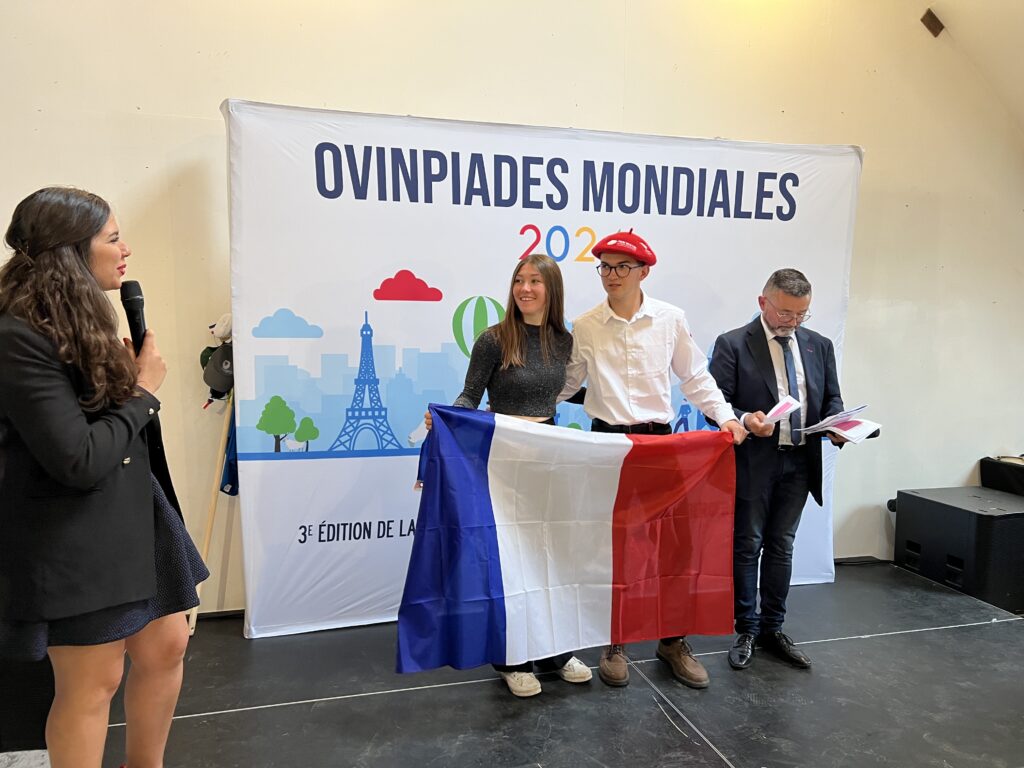
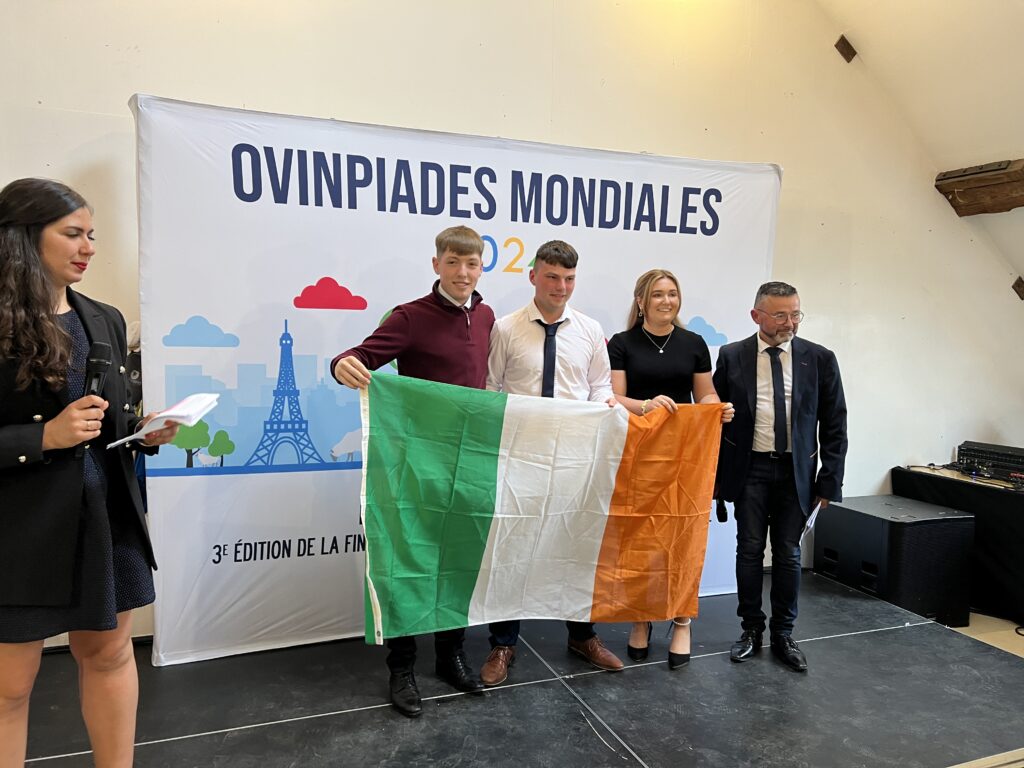
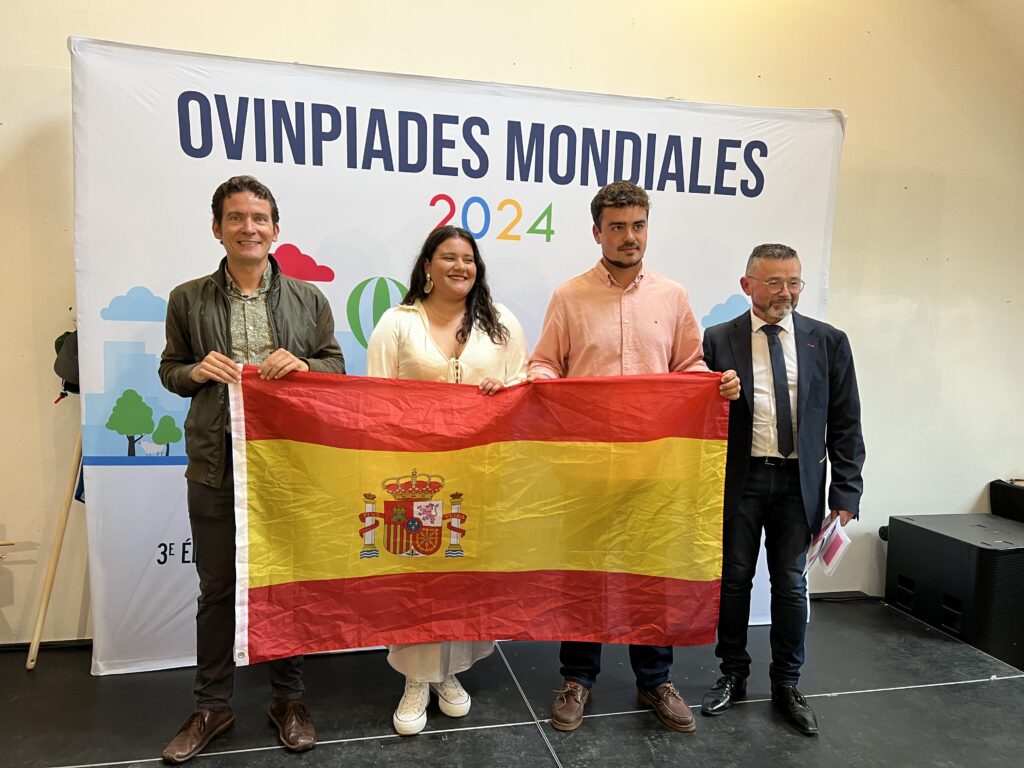
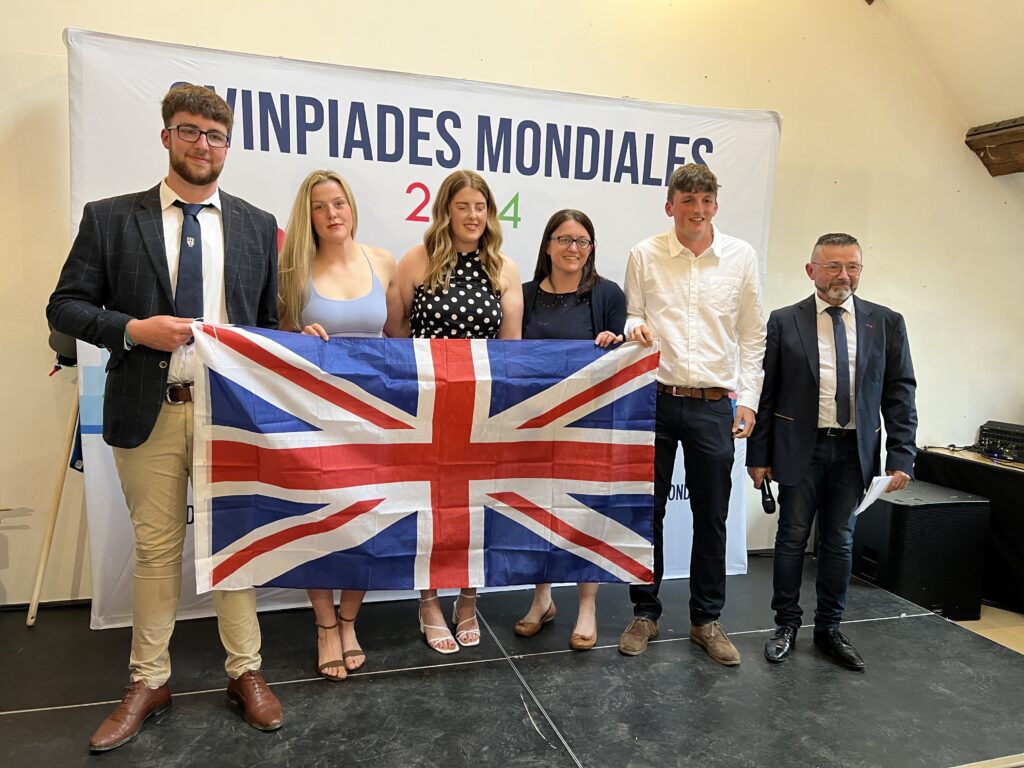
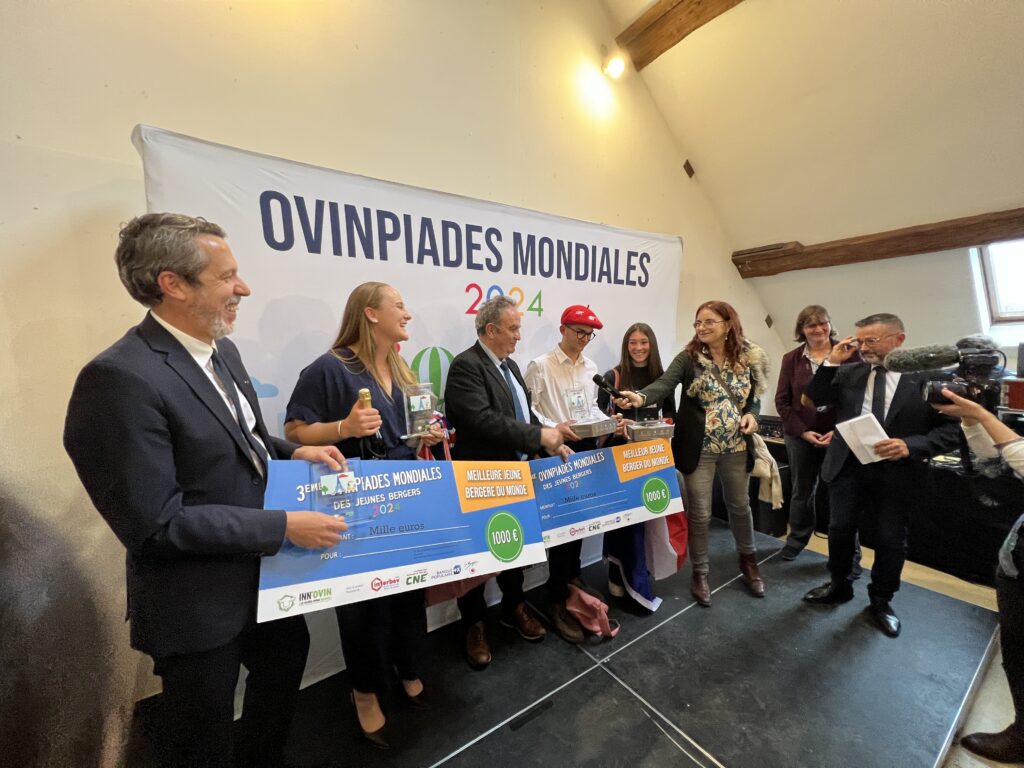
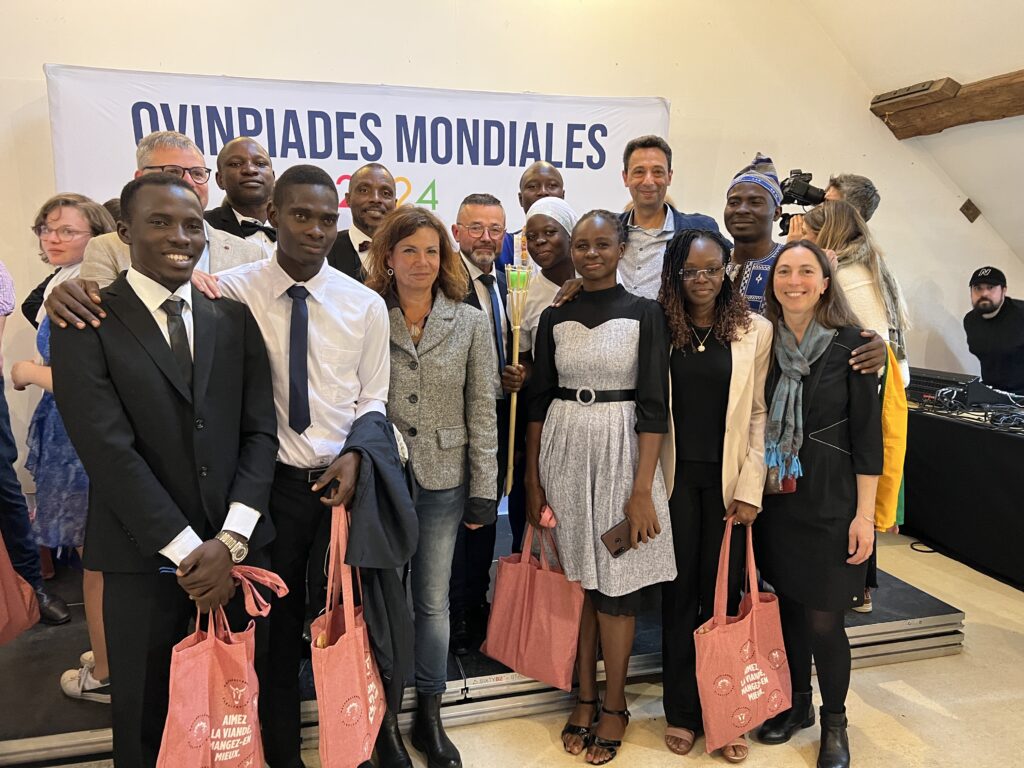
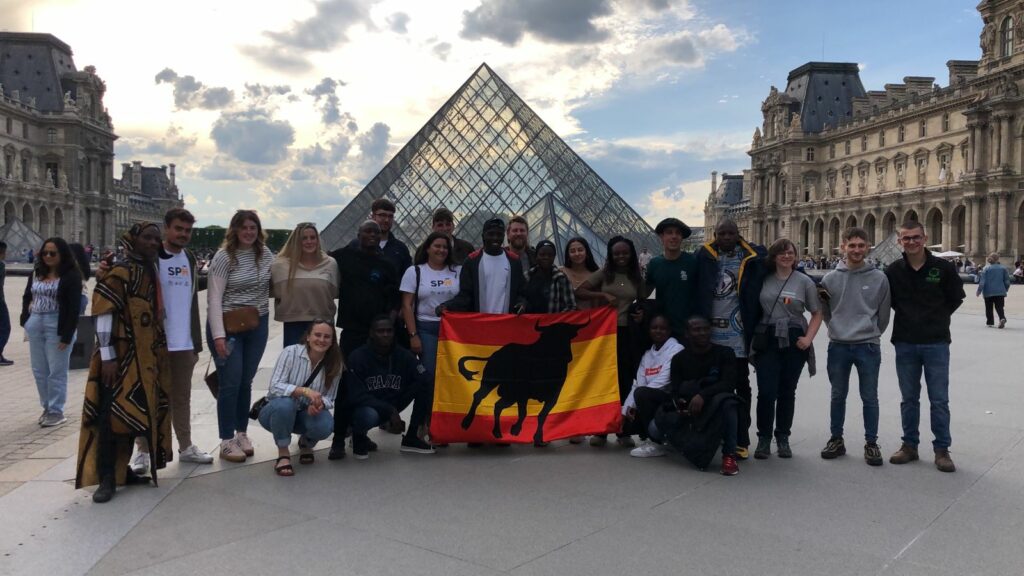
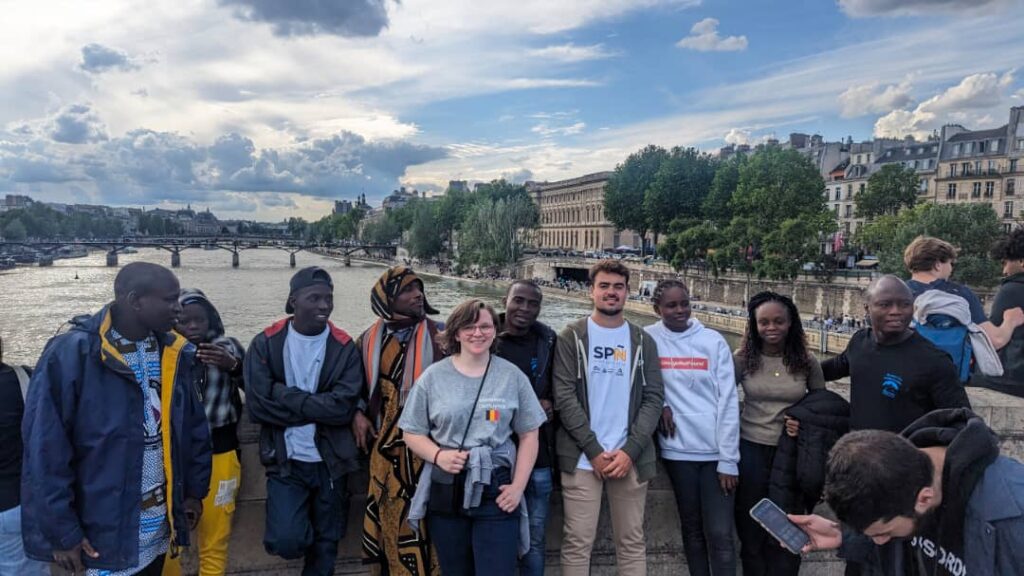
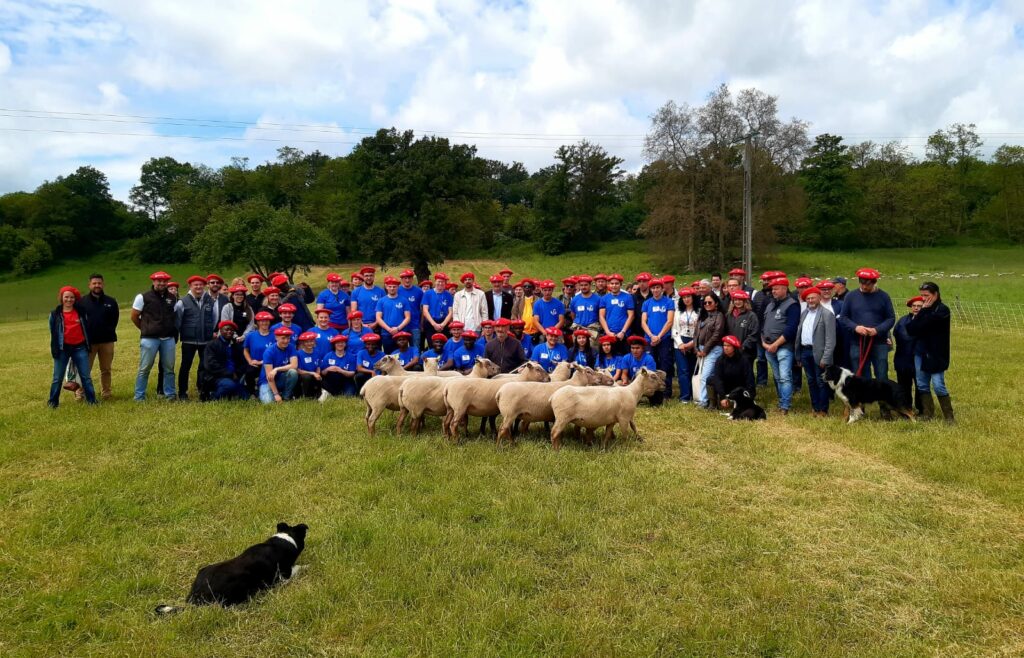
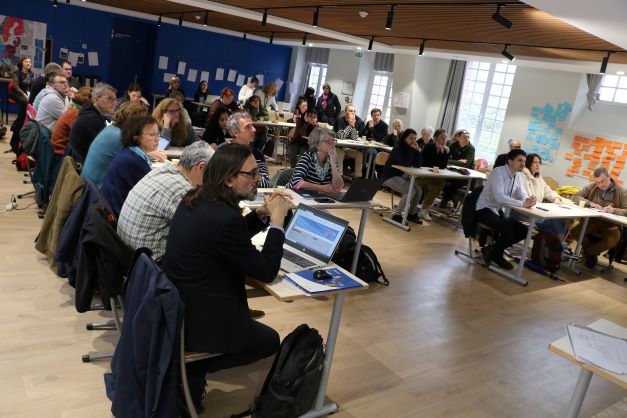 The 35 participants present from April 12 to 14, 2023, from Belgium, Germany, Luxembourg, Denmark, Finland, Latvia, Turkey, Poland, Sweden, Spain, Estonia and France, took an active part in the activities proposed around agroecological issues to build their future projects with one or more of the European partners present.
The 35 participants present from April 12 to 14, 2023, from Belgium, Germany, Luxembourg, Denmark, Finland, Latvia, Turkey, Poland, Sweden, Spain, Estonia and France, took an active part in the activities proposed around agroecological issues to build their future projects with one or more of the European partners present.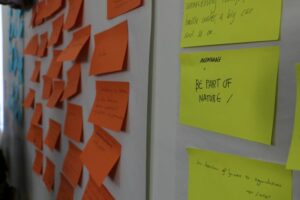 Participants then shared their views on agro-ecology, sustainability and how these concepts should be taught. Some
Participants then shared their views on agro-ecology, sustainability and how these concepts should be taught. Some 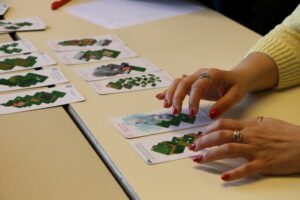 presented their experiences of agro-ecology projects in a poster session. The others were able to find out about these experiences and this gave rise to exchanges of practice. The representatives of each partner institution enthusiastically took part in each workshop, which offered a range of activities: the fundamentals of agro-ecology, the « AgroChallenges » serious game for agricultural education and the « Agro-ecology » kit EducLocalFOOD. The programme for the meeting included a tour of the agro-ecology principles followed at the Bergerie nationale farm. Speeches by researchers, experts in agro-ecology and in educational issues, enabled these two aspects to be explored in greater depth.
presented their experiences of agro-ecology projects in a poster session. The others were able to find out about these experiences and this gave rise to exchanges of practice. The representatives of each partner institution enthusiastically took part in each workshop, which offered a range of activities: the fundamentals of agro-ecology, the « AgroChallenges » serious game for agricultural education and the « Agro-ecology » kit EducLocalFOOD. The programme for the meeting included a tour of the agro-ecology principles followed at the Bergerie nationale farm. Speeches by researchers, experts in agro-ecology and in educational issues, enabled these two aspects to be explored in greater depth.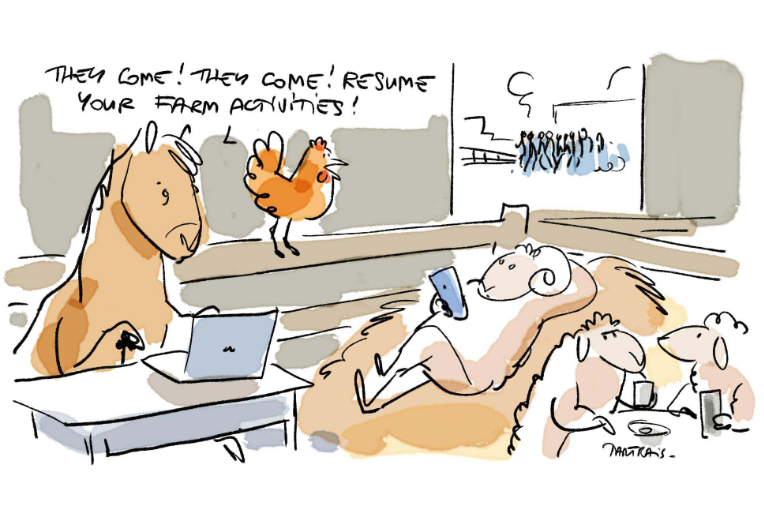 It has to be said that the offbeat and sympathetic approach of the professional cartoonist and the quality meals, prepared with respect for ‘AB’ products and/or from local produce, by the Bergerie’s catering service, also contributed to the success of the meeting. The participants left delighted with their experience in Rambouillet and highly motivated to set up European projects. Agroecology taught at La Bergerie – Since 1994, La Bergerie, a zootechnical teaching centre, has been a pioneer in raising awareness of the concept of sustainable development and offers a wide range of training courses, particularly in agroecology. Agroecology is an environmentally-friendly form of agriculture that seeks to improve biomass renewal, ensure favourable soil conditions for plant growth and make the most of biological interactions by using ecological processes. It favours farming that is profitable, more self-sufficient and more local. The Bergerie Nationale aims to develop a coherent production system for its farm.
It has to be said that the offbeat and sympathetic approach of the professional cartoonist and the quality meals, prepared with respect for ‘AB’ products and/or from local produce, by the Bergerie’s catering service, also contributed to the success of the meeting. The participants left delighted with their experience in Rambouillet and highly motivated to set up European projects. Agroecology taught at La Bergerie – Since 1994, La Bergerie, a zootechnical teaching centre, has been a pioneer in raising awareness of the concept of sustainable development and offers a wide range of training courses, particularly in agroecology. Agroecology is an environmentally-friendly form of agriculture that seeks to improve biomass renewal, ensure favourable soil conditions for plant growth and make the most of biological interactions by using ecological processes. It favours farming that is profitable, more self-sufficient and more local. The Bergerie Nationale aims to develop a coherent production system for its farm.